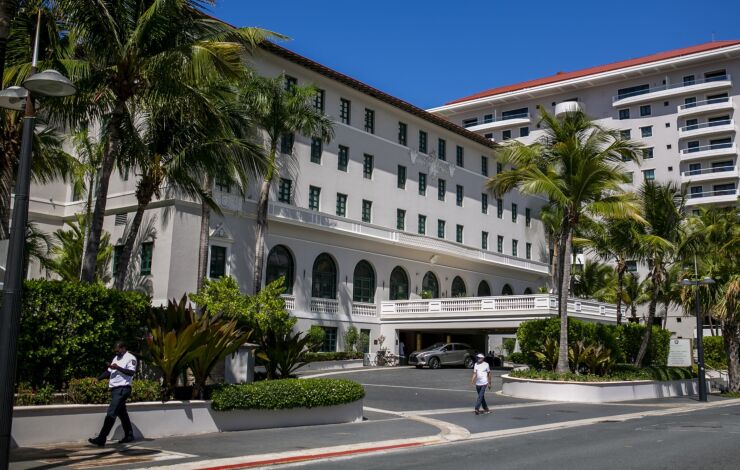Puerto Rico’s Economic Activity Index declined in April from the month prior, even as its employment situation improved, while employment data from the U.S. Bureau of Labor Statistics was more uniformly positive.
However, a semi-annual Business Confidence Index slipped as business owners cited concerns over energy costs and personnel shortages amid global supply chain issues and inflation concerns.
The Economic Activity Index declined by 0.3% in April compared to its March level, the Economic Development Bank for Puerto Rico said Thursday. The index was up 1.1% from six month earlier and 3.5% year-over-year.

Puerto Rico’s Economic Activity Index is based on four measures: total non-farm payroll employment, electric power generation, gasoline consumption, and cement sales. In April compared to March, employment and cement sales were up while the other two measures were down. Compared to a year earlier, only electric power generation was down while the others were up.
Over the last five years the index was up 1.5% through April.
The U.S. Bureau of Labor Statistics’s household survey showed that April employment was up 0.06% from a month earlier, 7.4% from a year earlier, and 15.1% from five years ago.
The unemployment rate was 6.4% in April, down from 6.5% in March, and 8.0% in April 2021, and 10.9% in April 2017.
The bureau also releases a survey of establishments to determine employment changes and patterns, which showed nonfarm employment in April was up 0.6% from a month earlier, 2.1% from a year earlier, and 3.5% from five years ago.
The establishment survey indicated that private sector employment in April was up 0.6% from a month earlier, 7.4% from a year earlier, and 8.6% from five years earlier.
The establishment survey does not cover agricultural employment or self-employment. All the employment numbers presented are seasonally adjusted.
The bureau’s household survey is called Current Population Survey and its establishment survey is called Current Employment Statistics.
Puerto Rico’s Estudios Técnicos business and economy consulting firm on Wednesday released its semi-annual index of small- and medium-sized business sentiment on the island showing increasing pessimism about the future, with the Business Confidence Index slipping to 63.5% from 71.9% in November.
The percentage of the surveyed business owners who believed Puerto Rico’s economic situation would worsen in 12 months went from 22.1% in the November survey to 32.5% in the most recent survey. The percent who believed the situation would improve went from 36% in November to 22% in the most recent survey.
Business owners said their biggest concerns were energy costs, personnel shortages, and tax burdens.
Bondholders, other creditors, the Puerto Rico Oversight Board, the unions and pensioners of the Puerto Rico Electric Power Authority, and Gov. Pedro Pierluisi are currently negotiating a new
Puerto Rico currently has the highest number of average daily cases per 100,000 people of COVID-19 in the country of any state or territory, according to New York Times compiled data, at 127. This is contributing to business problems maintaining staffing.
The economic statistics affect





